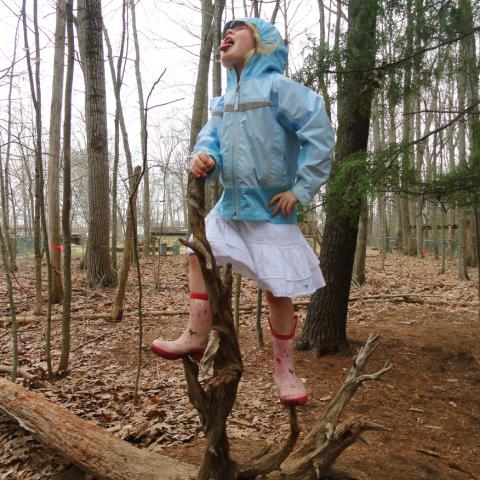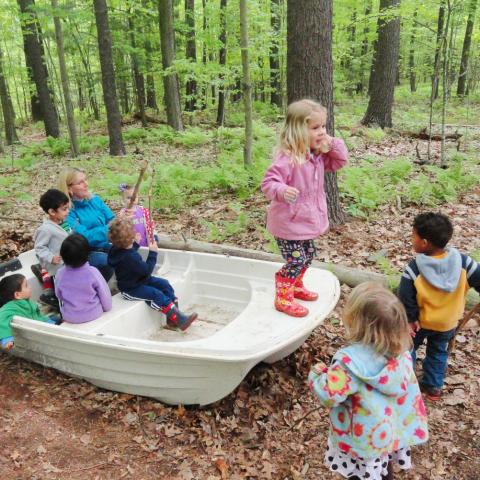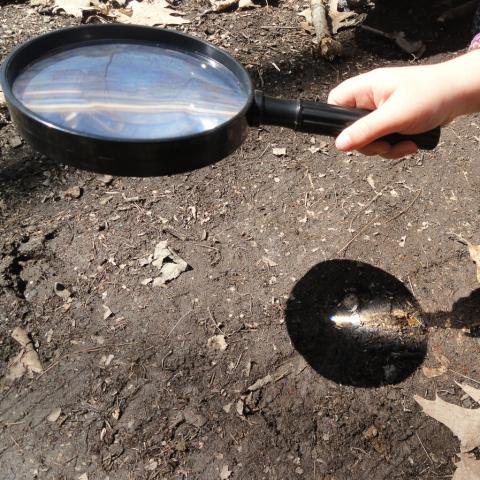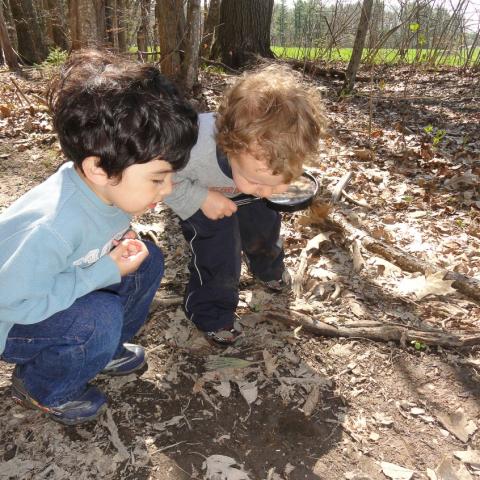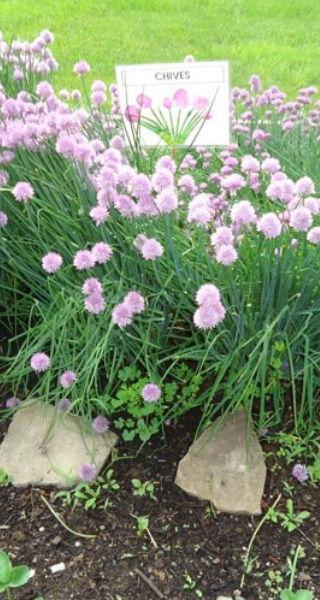
The CSDC Garden Initiative is a community outreach effort of the Child Study and Development Center (CSDC) at the University of New Hampshire, focused on engaging young children, families, and teachers in the joy of gardening and teaching the seed to table concept.
Our mission is to advance understanding of the importance of horticulture to human beings in New Hampshire and regionally through tapping into the curiosity of our youngest citizens, both directly through their participation and indirectly through the education of their teachers and families.
A unique feature of our garden initiative has been our collaboration with the UNH Cooperative Extention Strafford County Master Gardener Program.
Curriculum Development in the Community Learning Garden
The Community Learning Garden at CSDC, designed and planted by the children each year, provides a focal point for the development of gardening curricula and the documentation of experiences to be shared with others. The Garden Initiative is a living curriculum that is constantly being refined as projects in our curriculum are field-tested by teachers in the garden at the CSDC in Durham.
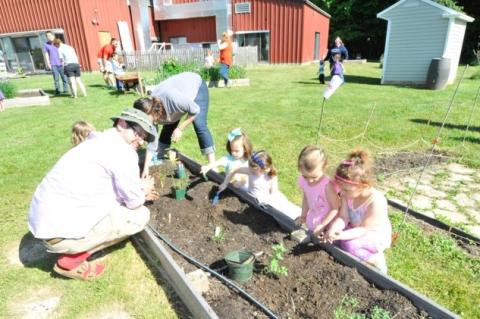
Our gardening project at the CSDC includes children in the planning, construction, planting and harvest of the garden as part of a long-term investigation. Throughout the year children ages infant through kindergarten participate in a horticulture and plant science curriculum that is responsive to their questions, theories and interests. During winter the children utilize indoor container gardens to study how plants grow and when spring arrives we begin the collaborative process of brainstorming ideas, plants and structures for the outdoor Learning Garden. Throughout the summer children engage in cooking, experiments and research.
Why is gardening with children important?
Children develop an interest in science if introduced at a young age.
- Gardening helps children learn science, math, problem solving and other skills in an active, fun and meaningful way.
- Urbanization means children are isolated from farming and where their food comes from.
- Children are more likely to try healthy foods if they participate in the growing process.
- Diversity in nature lends to conversations about the diversity in our society.
- Today's children are tomorrow's environmental stewards.
Outdoor Learning
Throughout the creation of Classroom in the Woods, children have experienced a sense of ownership and responsibility as they negotiate with one another to decide on what the area will become. This ever-changing, fluid space has the ability to transform based on the passions and developmental level of the children who help create it. They challenge their gross motor skills, balancing on a large balance beam, negotiate spatial and peer relationships as they brave the harsh waters on the U.S.S. Wildcat, find inspiration from nature for their creative endeavors and hypothesize about animals that have visited their space by looking closely at animal tracks.
